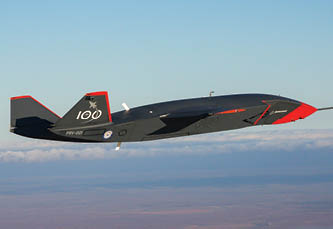The physical passport and boarding pass could be among the earliest casualties of the COVID-19 pandemic as the travel industry moves towards “touchless airports”.
Just as September 11 changed airport security forever, coronavirus will have long-lasting effects on the travel industry. Certainly, things like check-in, and even going through security at an airport, will look a lot different in a post-pandemic world.
Airlines such as Qantas were already working towards biometric screening before the pandemic.
The changes aim to reduce “the risk of pathogen transmission”.
In future, passengers can expect Sydney Airport-style contactless bag checks to be rolled out around the country.
They will have their boarding pass loaded on their mobile phone and airlines will use facial recognition software to confirm their identity.
Expect biometrics
Biometrics trials by Qantas in Australia in 2018 resulted in physical boarding passes being replaced by facial recognition in Brisbane and Sydney.
Although participants in the trial still had to load their boarding pass onto their mobile phone to check-in to their flight and drop off luggage, they used facial recognition to board their flight and access the Qantas lounge.
The face scan at the boarding gate brought up all the information needed on a computer used by the Qantas employees.
The airline employees could then wave the passengers through from a distance.
In Los Angeles, the company took it one step further and removed the need to show your passport.
“You won’t need your passport or boarding pass at the gate on selected flights,” Qantas said at the time.
“Instead, you’ll be boarded using information US Customs and Border Protection captured when you entered America.”
Touchless technology
Airports are also experimenting with touchless technology throughout their facilities.
Elevators could operate by users simply waving their hand in front of a computer panel to indicate the level and direction they require.
Temperature scans that often require close contact between passengers and health professionals could be done with thermal imaging cameras.
Restaurants could operate on a digital ordering service to cut down on face-to-face encounters.
CT Security Screening
Speaking at media briefing organised by Amazon Web Services (AWS) to discuss the future of air travel in Australia and abroad, Avalon Airport’s CEO Justin Giddings said computerised tomography (CT) security screening had been installed in both international and domestic terminals, eliminating perhaps one of the most annoying parts of going through security.
The technology basically means whatever electronics or liquids you have in your bag stays put – rather than having each passenger lug out laptops, tablets or mobile phones before going through the security screen.
Mr Giddings said the advanced technology is imperative in today’s climate, where social distancing measures are in place and people want to eliminate public touch points and congregating in crowds as much as possible.
“You can simply leave everything in the bag, put it through the system and get out of there as quickly as possible,” Mr Giddings said.
Mr Giddings said his airport has also used the lockdown period to introduce touchless check-in screens and bag drop systems supplied by Melbourne-based technology provider Elenium Automation. Mr Giddings said these new check in system “reduces critical touch points”, and allows airport personnel to let passengers through with confidence. The system also enables passengers to scan in and scan out of the airport, like at a restaurant, so they can be contact traced if necessary.
Aaron Hornlimann, CEO of Elenium Automation, said these new technologies were just the beginning of how airports – and even in-flight services – will change in the new world of travel.
Speaking of how passengers will have a different experience in the air, Mr Hornlimann said the biggest change will be how we receive entertainment and even food and drinks.
“There will be no more seat-back pockets, safety cards and food menus will be displayed on the seat-back screens and accessible digitally via your phone.”
“There will be digital toilets, where queues are managed and ultraviolet lights disinfect germs after each visit. And purchases on board will all be cashless.”
Mr Hornlimann said touchless technologies will be more pervasive during and following this global pandemic and expects airlines will eventually – like a FitBit – track a passenger’s health and vital signs.
“Like FitBit can track your sleep, an airline will be able to track your temperature for example,” he said.
“So you may well not have one when you board the aircraft, but you could develop one in-flight and the airline will be able to detect that and take the appropriate steps before landing. “There are many applications of these types of technologies which will change our flying experience in the near future.”
Rapid tests
The Centre for Aviation Australia (CAPA) held its virtual Australia Pacific Aviation Summit last September.
Addressing the summit, Qantas CEO Alan Joyce called for rapid pre-flight COVID-19 testing as a way to restart international travel.
He said rapid tests could identify COVID-19 positive travellers and remove the need for quarantine.
“There’s some great developments in testing that could resolve the issue of people needing to go into quarantine,” he said.
Rapid testing, he said, would finally allow Australia to start travel bubbles with New Zealand and the Pacific Islands, and longer routes, such as Perth to London, soon after.
Proof of health
Travellers may also be required to provide a COVID-19 test certificate when they book a flight or to provide a vaccine certificate.
All that information would also be linked to a scan of your face.
Systematic biometric verified identification at each stage of the journey will replace today’s manual identity verifications…..but it would mean allowing carriers to keep a lot of personal data.













